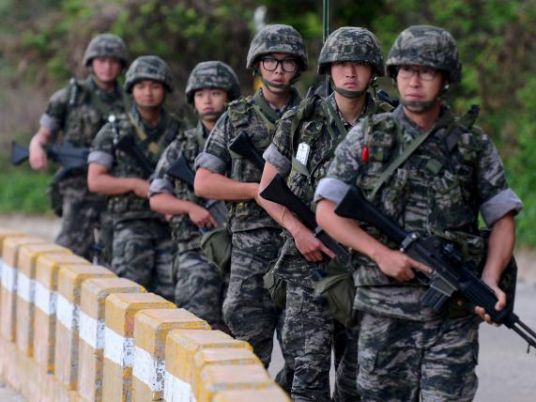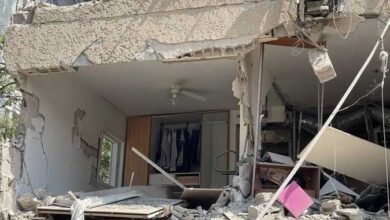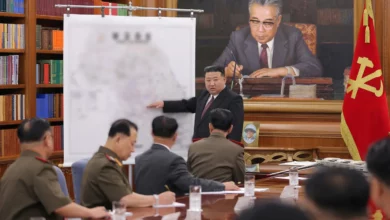
North and South Korea agreed early on Tuesday to end a military standoff that sparked an exchange of artillery fire and had ratcheted up tension on one of the world's most heavily-fortified borders.
Under an accord reached in the early hours, following more than two days of talks, North Korea expressed regret over the recent wounding of South Korean soldiers in landmine blasts and Seoul agreed to halt anti-Pyongyang propaganda broadcasts.
North Korea also agreed to end the "semi" state of war it had declared. The two sides will hold follow-up talks to discuss a range of issues on improving ties, the joint statement said.
Both sides began rolling back heightened military postures at noon (0300 GMT), Seoul's defense ministry said.
"It is very meaningful that from this meeting North Korea apologized for the landmine provocation and promised to work to prevent the recurrence of such events and ease tensions," said Kim Kwan-jin, national security adviser to South Korean President Park Geun-hye, who headed Seoul's delegation.
Pyongyang had denied laying the landmines, and in the statement did not explicitly take responsibility for them. However, any expression of regret by the North, better known for its bellicose rhetoric, is rare.
The marathon talks at the Panmunjom truce village inside the Demilitarized Zone (DMZ) separating the two Koreas began on Saturday, shortly after Pyongyang's deadline for the South to halt its propaganda broadcasts or face military action.
"They both made compromises. South Korea did not get an apology, they got a statement of regret about the injury, which they can spin as an apology," said John Delury of Yonsei University in Seoul.
"The more important point is maintaining this channel and reopening the relationship. This is hardly going to be easy to implement, but it’s a landmark agreement which lays out a path."
Seoul and Pyongyang have remained technically in a state of war since the 1950-53 Korean war ended in a truce, not a peace treaty.
Thaw?
Inter-Korean relations have been all but frozen since the 2010 sinking of a South Korean warship, which killed 46 sailors, that Seoul blames on the North. Pyongyang denies responsibility.
On Tuesday, the two sides also agreed to arrange reunions of families separated by the Korean War during upcoming autumn holidays and in future.
"What's important now is to carry forward specific projects agreed by South and North smoothly through follow-up talks so as to ease tensions between South and North," Park's presidential office quoted her as saying.
Halfway through a single five-year term that has been buffeted by crises and a stumbling economy, Park appears to have gotten a lift from Seoul's tough stance with the North, with her approval rating rising to 41 percent in a Realmeter poll conducted last week.
Improving ties with the reclusive and impoverished North have been largely unsuccessful is one of Park's key goals. But her efforts, so far, have been largely unsuccessful.
Numerous sticking points remain, from the North's nuclear program and Seoul's sanctions following the ship sinking. There have also been comparatively minor sources of conflict, such as South Korean activists distribution of anti-North leaflets and the suspension of South Korean tours to Mount Kumgang in the North.
Asked early on Tuesday about the prospect for a summit meeting between Park and the North's young leader, Kim Jong Un, the South's national security adviser said it was "not the time" to discuss that.The two Koreas have not held a summit since 2007.
Landmines and loudspeakers
The rise in tensions began early this month, when the landmine explosions in the DMZ wounded two South Korean soldiers.
Days later, the South began blasting anti-Pyongyang propaganda from loudspeakers along the border, reviving a tactic that both sides had halted in 2004.
The standoff reached a crisis point on Thursday when the North fired four shells into the South, according to Seoul, which responded with a barrage of artillery fire.
Pyongyang then made its ultimatum that Seoul halt the broadcasts by Saturday afternoon or face military action, but on that day the two sides agreed to hold talks between top level aides to the leaders of the two countries.
Even as talks were proceeding, North Korea deployed twice the usual artillery strength at the border and had around 50 submarines away from base, the South's defense ministry said. South Korea had also increased its military readiness.
Washington and the United Nations welcomed the agreement, as did Beijing, Pyongyang's main ally.
"We're going to judge the North by its actions," US State Department spokesman John Kirby told a briefing. "It was a very tense several days."
North Korea is under UN and US sanctions because of repeated nuclear and missile tests, moves that Pyongyang sees as an attack on its sovereign right to defend itself.




